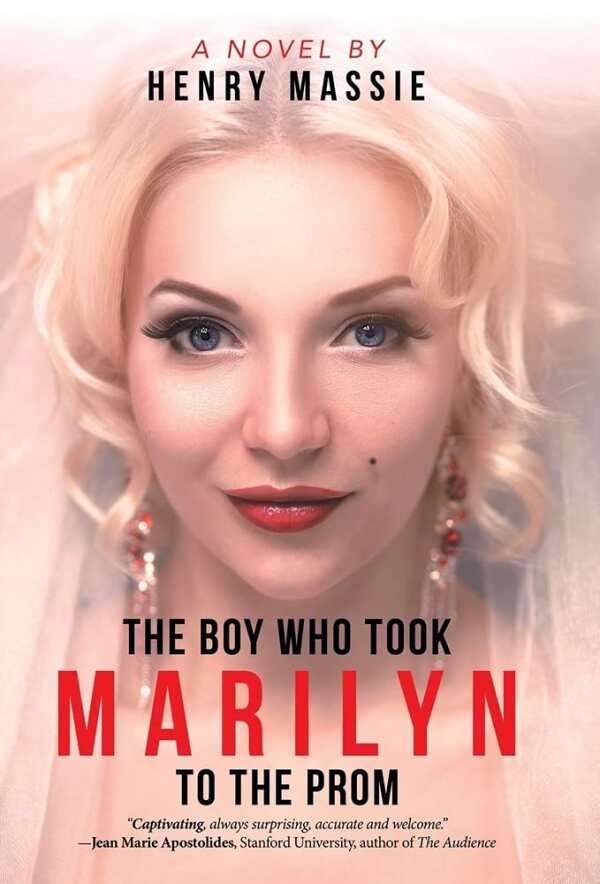The Boy Who Took Marilyn to the Prom
The Boy Who Took Marilyn to the Prom is a novel about the strength of nostalgia, and the problems that sustained reminiscence can lead to.
In Henry Massie’s nostalgic novel The Boy Who Took Marilyn to the Prom, two men reflect on their glory days spent in the glow of a Hollywood’s brightest starlet.
Robbie is in high school; his father is a psychiatrist who begins treating Marilyn Monroe. In an attempt to ease her depression and anxiety, the doctor tries to give Marilyn the normal life she never had, moving her into his family’s home. Over several months, Marilyn integrates herself into the ordinary family, and Robbie and his best friend Eli have the extraordinary experience of living alongside a famous actress.
As Robbie grows closer to Marilyn, he observes her secret struggles and aspirations. He comes to see Marilyn not as a celebrity, but as a troubled person. Still, his crowning glory is arriving to prom with Marilyn on his arm, an event that lingers in his memory thereafter. But as an adult, Robbie remains under Marilyn’s spell, triggering a thoughtless act that could cost him his career. Together, Robbie and Eli ponder their pasts to understand Robbie’s predicament.
The chapters alternate between the past and present, with harsh divisions between the men’s golden high school days and the complexities of their adulthoods. Past-set sections are replete with images of light, sun, and warmth; their language is casual and playful. Conversely, the present-set sections are filled with fog and stormy waters, even when it comes to descriptions of the men’s California homes; here, their conversations are serious and riddled with profanities. These contrasts capture the men’s tender senses of nostalgia well.
Over the course of the novel, Robbie and Eli mature and develop; in each stage of their lives, who they are is conveyed in realistic, tangible terms. Details, as of what Eli orders in a restaurant, or the name of the boat that Robbie owns, flesh out their worlds in small ways. Marilyn is developed through their understandings of her, beginning with their early senses of her as a celebrity, which lean on stereotypes and assumptions, and through to their slow developments of deeper understandings of her, which are also helped by how she opens up to them. In the end, singular moments and images help to make this story about the lasting effects of a celebrity encounter feel both unique and authentic.
When a man’s attempt to relive his teenage love affair turns dire, he calls on his childhood best friend to pull him out of the past. The Boy Who Took Marilyn to the Prom is a novel about the strength of nostalgia, and the problems that sustained reminiscence can lead to.
Reviewed by
Melissa Lance
Disclosure: This article is not an endorsement, but a review. The publisher of this book provided free copies of the book and paid a small fee to have their book reviewed by a professional reviewer. Foreword Reviews and Clarion Reviews make no guarantee that the publisher will receive a positive review. Foreword Magazine, Inc. is disclosing this in accordance with the Federal Trade Commission’s 16 CFR, Part 255.

